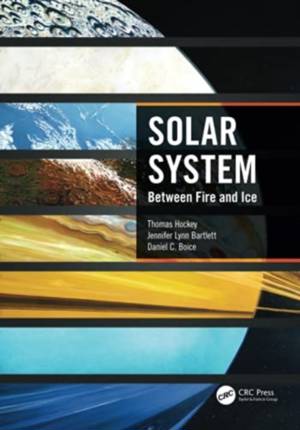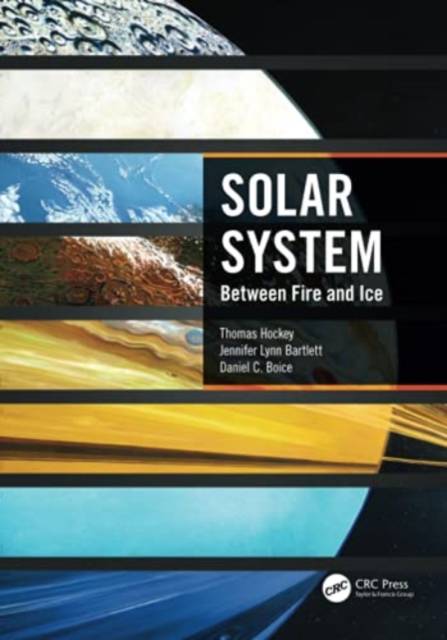
- Retrait gratuit dans votre magasin Club
- 7.000.000 titres dans notre catalogue
- Payer en toute sécurité
- Toujours un magasin près de chez vous
- Retrait gratuit dans votre magasin Club
- 7.000.000 titres dans notre catalogue
- Payer en toute sécurité
- Toujours un magasin près de chez vous
Solar System
Between Fire and Ice
Thomas Hockey, Jennifer Lynn Bartlett, Daniel C BoiceDescription
Combining the latest astronomical results with a historical perspective, Solar System: Between Fire and Ice takes you on a fabulous tour of our intriguing Solar System. Not content with a conventional discourse restricted to the major and minor bodies, astronomers Hockey, Bartlett, and Boice venture beyond the limits of our system to look at exoplanets and to consider future trends in space exploration and tourism. They discuss not only what scientists know about planets, asteroids, and comets but how the discoveries were made. With extensive teaching experience, their accessible prose clearly explains essential physical concepts. Lavishly illustrated as well as carefully researched, Solar System: Between Fire and Ice delights the eyes as well as feeding the mind. Detailed appendices provide additional technical data and resources for your own on-line voyage of discovery. Whether you are an educated layperson, student, teacher, amateur astronomer, or merely curious, you will come away having learned the most up-to-date knowledge and enjoyed the process.
The authors bring a unique perspective to this subject, combining their years of experience in research, teaching, and history of planetary science. Prof. Thomas Hockey is a professor of astronomy, specializing in planetary science and the history of science. Dr. Jennifer Bartlett is an astronomer with a forte in dynamical motions of asteroids with liberal arts teaching experience. Dr. Daniel Boice is an active research astronomer in planetary science, especially comets, with considerable teaching experience.
"In the 1980s and 90s the Viking and Voyager missions provided droves of exciting information, generating a new level of public interest. Textbooks were rewritten and scientists worked to understand the data during mission poor period that followed. In recent times, however, we have entered a new era. There has been a multinational effort to expand our knowledge of the Solar System. Data from these missions has been freely shared and has again raised the level of public interest. Within this era of renewed interest, it is appropriate, as is done in this book, to provide the public with an effort to present an integrated view of our Solar System and questions that the discovery of extrasolar planets have raised with regard to the Solar System as a whole." Professor Reta Beebe, recipient of NASA's Exceptional Public Service Medal
"I understand this book to be aimed at a general audience, but I can also see its use as a text in astronomy classes, especially in a community school or situations where students typically resist reading the textbook. The writing is light and entertaining, and will engage students, yet it thoroughly covers all the basic concepts of a typical Astro 101 class." - Dr. Katy Garmany, winner of the American Astronomical Society's Annie J. Cannon Award.
Spécifications
Parties prenantes
- Auteur(s) :
- Editeur:
Contenu
- Nombre de pages :
- 332
- Langue:
- Anglais
Caractéristiques
- EAN:
- 9780367768690
- Date de parution :
- 13-08-21
- Format:
- Livre broché
- Format numérique:
- Trade paperback (VS)
- Dimensions :
- 178 mm x 254 mm
- Poids :
- 612 g







